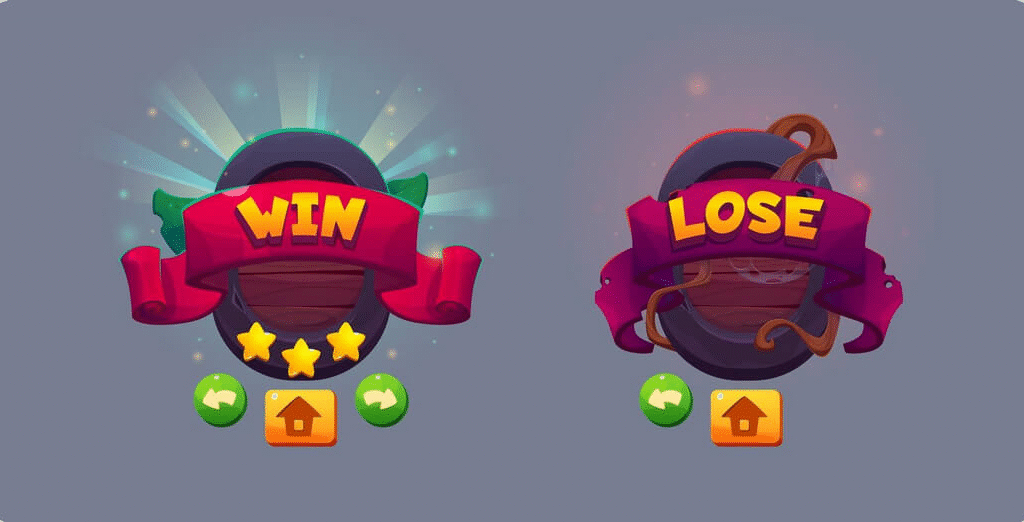What Unblocked Games Teach Us About Fairness
wp:paragraph
If you’ve ever found yourself sneaking in a round of an unblocked browser game during lunch, you know their magic. They load in seconds, keep you hooked with simple goals, and somehow feel fair, even when you lose. It’s that balance between effort, reward, and luck that keeps players coming back.
/wp:paragraph
wp:paragraph
But have you ever thought about what makes them feel fair? It’s not just about easy mechanics. It’s about wise design choices that create trust. That same sense of fairness is what online betting platforms and other digital games aim for, too – even if the stakes are different.
/wp:paragraph
wp:paragraph
When you understand how fairness works in gaming, you start to see the same logic behind everything from leaderboards to – yes – how betting margins work in sports and casino odds.
/wp:paragraph
wp:image {“id”:26709,”width”:”700px”,”sizeSlug”:”full”,”linkDestination”:”none”,”align”:”center”}

/wp:image
wp:heading
Why Fairness Feels Good?
/wp:heading
wp:paragraph
Players don’t like being tricked. Whether you’re running from obstacles in an endless runner or trying to clear a puzzle board, you want to believe your skill matters. That’s why many unblocked games use transparent systems. When you fail, you know why. When you win, it’s because you reacted fast or learned the pattern.
/wp:paragraph
wp:paragraph
Compare that to a game that feels “rigged”, maybe the enemy spawns too close, or you lose despite perfect timing. You stop playing. Fairness in design builds loyalty, even in free, simple games that take minutes to finish.
/wp:paragraph
wp:paragraph
Developers of unblocked games often rely on predictable physics, visible progress, and clear feedback. If a platformer feels tough, it’s because the challenge is consistent, not random. That’s why users trust it, even when they lose several times in a row.
/wp:paragraph
wp:image {“id”:26708,”width”:”700px”,”sizeSlug”:”full”,”linkDestination”:”none”,”align”:”center”}

/wp:image
wp:heading
Simple Design, Smart Balance
/wp:heading
wp:paragraph
It’s tempting to think that fairness comes from giving everyone an equal chance. But real balance means something else: everyone knows the rules.
/wp:paragraph
wp:paragraph
Take a browser game like a minimalist shooter. You know your hitbox, you see the projectiles, and you understand your limits. No hidden power-ups, no unfair bonuses for others. Everything is visible, and that transparency builds engagement.
/wp:paragraph
wp:paragraph
In betting, this translates to clear odds and visible margins. If a player knows what affects their chances, they feel empowered. It’s not about removing challenge but about eliminating confusion.
/wp:paragraph
wp:paragraph
The beauty of unblocked games is that they achieve this with so little. No flashy graphics, no 10-minute tutorials. They drop you straight into the action, and you learn through experience.
/wp:paragraph
wp:paragraph
That same principle applies to any digital system that wants to earn trust: clarity first, rewards second.
/wp:paragraph
wp:heading
Player Psychology: Why Predictability Wins
/wp:heading
wp:paragraph
Every click, jump, or tap gives players feedback. The human brain thrives on loops – action, reaction, and reward. That’s why so many browser games are satisfying. The feedback loop is tight: you make a move, and something happens immediately.
/wp:paragraph
wp:paragraph
In contrast, games with delays or unclear outcomes break immersion. Imagine clicking a button and waiting five seconds before anything happens. It feels wrong. We crave instant validation.
/wp:paragraph
wp:paragraph
This psychology isn’t limited to gaming. Every good online experience, from social apps to finance platforms, uses the same feedback principles. People want to feel progress. They want cause and effect to make sense.
/wp:paragraph
wp:paragraph
Unblocked games mastered this early. Even when you lose, you see what went wrong, and that clarity makes you want to try again.
/wp:paragraph
wp:heading
Lessons from Game Design for Fair Systems
/wp:heading
wp:paragraph
There’s something pure about small, quick games built to be played anywhere. Developers can’t hide poor balance behind cinematic effects or paywalls. The system either feels fair or it doesn’t.
/wp:paragraph
wp:paragraph
That’s where betting platforms and digital markets can learn the most. The best of them take cues from game design to make users feel confident in their decisions. They display outcomes transparently, provide stats upfront, and avoid the “mystery” that can make users uneasy.
/wp:paragraph
wp:paragraph
You can think of it as a digital handshake: the platform shows its mechanics, and the player accepts the challenge. It’s mutual respect through design.
/wp:paragraph
wp:paragraph
Even in competitive settings, like prediction challenges or esports-style matchups, the idea remains the same. The rules are the same for everyone. That’s what makes competition fun, not frustrating.
/wp:paragraph
wp:heading
The Role of Transparency
/wp:heading
wp:paragraph
Transparency is what separates good digital systems from manipulative ones. When the user knows the odds, understands the mechanics, and can see progress, trust grows naturally.
/wp:paragraph
wp:paragraph
This is something both game developers and online betting companies are starting to prioritise. In gaming, it’s visible hit detection and clear scoring. In betting, it’s showing the real odds, not hiding behind flashy numbers.
/wp:paragraph
wp:paragraph
Both aim to make users feel in control, a key factor in long-term engagement. Nobody likes guessing what’s happening behind the curtain.
/wp:paragraph
wp:paragraph
A transparent platform is like a good puzzle: you might struggle, but you always know that solving it is possible.
/wp:paragraph
wp:image {“id”:26707,”width”:”700px”,”sizeSlug”:”full”,”linkDestination”:”none”,”align”:”center”}

/wp:image
wp:heading
The Human Element in Digital Fairness
/wp:heading
wp:paragraph
What’s easy to forget in all of this is the human side. Players don’t just want fair systems; they want systems that feel fair. That emotional response matters as much as the math behind it.
/wp:paragraph
wp:paragraph
In unblocked games, that feeling often comes from small details – an instant retry button, music that reacts to progress, or a score that’s always visible. These touches make users feel seen and respected.
/wp:paragraph
wp:paragraph
The same emotional logic applies to digital betting as well. When players see that their data is protected, their odds are real, and their wins or losses are clear, they feel comfortable. It turns a transactional experience into something personal and enjoyable.
/wp:paragraph
wp:heading
Learning Fairness Through Play
/wp:heading
wp:paragraph
Playing small browser games might seem like a quick distraction, but they’re a brilliant study in fairness. Every level teaches a bit about feedback, progression, and balance.
/wp:paragraph
wp:paragraph
Next time you load one up, pay attention. Why does it feel satisfying when you clear a stage? It’s the design. That invisible structure is what keeps millions of players engaged every day.
/wp:paragraph
wp:paragraph
And whether you’re building a game, managing a digital platform, or even placing a bet online, those same lessons apply. Fairness isn’t an accident but is built carefully into every system that values its users.
/wp:paragraph
wp:heading
Why Fairness Keeps Players Coming Back?
/wp:heading
wp:paragraph
At the end of the day, fairness builds loyalty. When players trust a system, they stick with it. That’s true whether they’re racing through levels or checking live odds.
/wp:paragraph
wp:paragraph
The most successful digital platforms, gaming, betting, or otherwise, all share this DNA. They are transparent, engaging, and predictable in the best possible way.
/wp:paragraph
wp:paragraph
So next time you’re playing an unblocked game at your desk or testing a new betting app, notice how it makes you feel. If it feels fair, immediate, and rewarding, the design is doing its job.
/wp:paragraph
wp:paragraph
And that, more than any flashy graphics or hidden bonuses, is what keeps people playing.
/wp:paragraph





